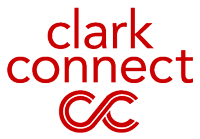Sarah Philbrick ’15, M.S. ’16, wants to change our world, and she believes Clark students are the people to do it. As an undergraduate, the upstate New York native majored in economics and minored in management and later completed a master of science in geographic information science (GIS) through Clark’s fifth-year Accelerated B.A./Master’s Program. Philbrick’s true passion is public policy research, as evidenced by her work at the Metropolitan Area Planning Council, the regional planning agency serving Metro Boston.

Philbrick started working at the Metropolitan Area Planning Council while still a graduate student at Clark, and now works alongside two other Clark alumni. She is an active ClarkCONNECT user and, more importantly, an engaged and thoughtful mentor to Clark students on and off the platform.
Below, Philbrick talks about her work in public policy research, the value of a liberal arts education, and why she stays connected to the Clark community.
Why did you join ClarkCONNECT?
I went to a ClarkCONNECT kickoff event in Boston in 2017, and I wanted to see what students from class years that didn’t overlap with mine were doing. Clark doesn’t have a specific path for people who wish to pursue a career in public policy research, so finding alumni in my field is not as straightforward as it is for other careers. I thought ClarkCONNECT could help me find other Clark students in similar industries who may have come from different majors or programs. I didn’t join ClarkCONNECT solely to share my experiences with current students, but since joining I’ve conducted a lot of informational interviews with students who have reached out to me.
Can you describe your public policy research?
Right now I work at an organization called the Metropolitan Area Planning Council, a quasi-government agency in Massachusetts. We’re the regional planning agency for 101 cities and towns around Metro Boston. I primarily do demographic research about who will be living and working in the area in the future and what their housing and transportation needs might be. I also lead the agency’s scenario modeling work, which allows us to think about ways in which the future could be different than it is today and helps us make decisions about where to invest.

And you work with other Clarkies?
We do have two former Clark students who recently started working here. I posted the job through a GIS job poster that a professor from [Clark’s] Department of Geography runs, and one of our new hires found out about the job that way.
What was it like not following a straight path between your major and career?
I’ve found that people in public policy research all tend to come from different backgrounds. Most jobs are generally more interdisciplinary than the majors that we choose, so I think what’s most important is to find something that you’re passionate about and inspires you to keep learning, and then everything else will just fall into place.
Why do you think it’s important for alumni to stay involved with the Clark community and connect with current students?
I think there’s a similarity between the people who decide to go to Clark. I think people who decide to go to Clark have a particular way of viewing the world. Something about our motto, “Challenge Convention, Change Our World,” resonates with Clark students. Those are the kind of people I want to be working with: People who try to make the world a better place. I think you’re already crossing some sort of first path or hurdle by knowing that someone went to Clark. I feel it’s important to share with current students, both by posting opportunities and also just showing people that their paths can be a little bit different.
On that note, do you have any last advice for current Clark students?
The best advice I have is to make sure that you’re building some sort of toolbox or skill set while you’re at Clark. You’re never going to be fully prepared for the job you get after graduating, so the best you can do to prepare is to make sure you have all the tools you need. For me, those were research skills, but I’m sure for other positions those are different things. You can gain those tools in many ways, whether it’s through coursework or internships or club involvement, but what’s important is that you acquire those tools and then learn how to market them as you look for a job.


